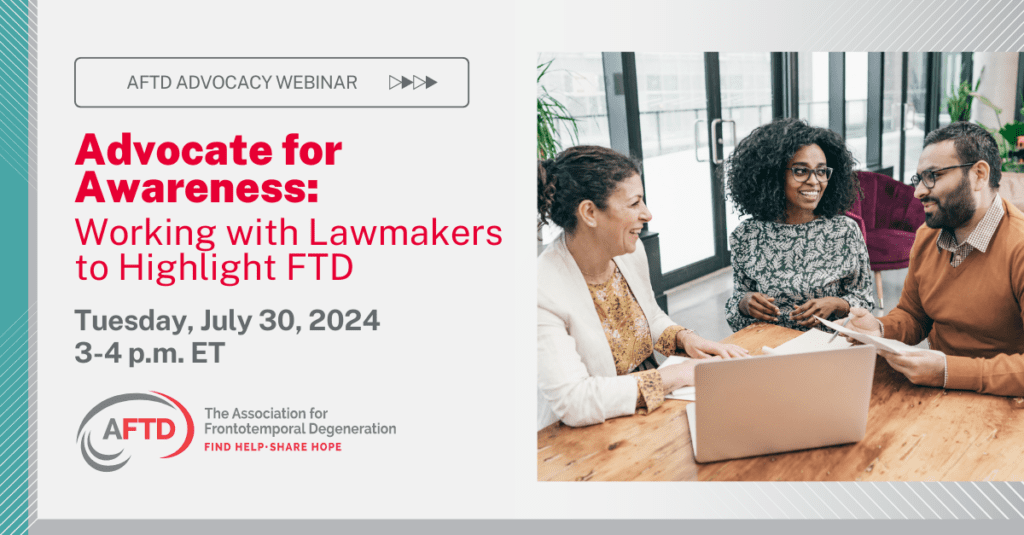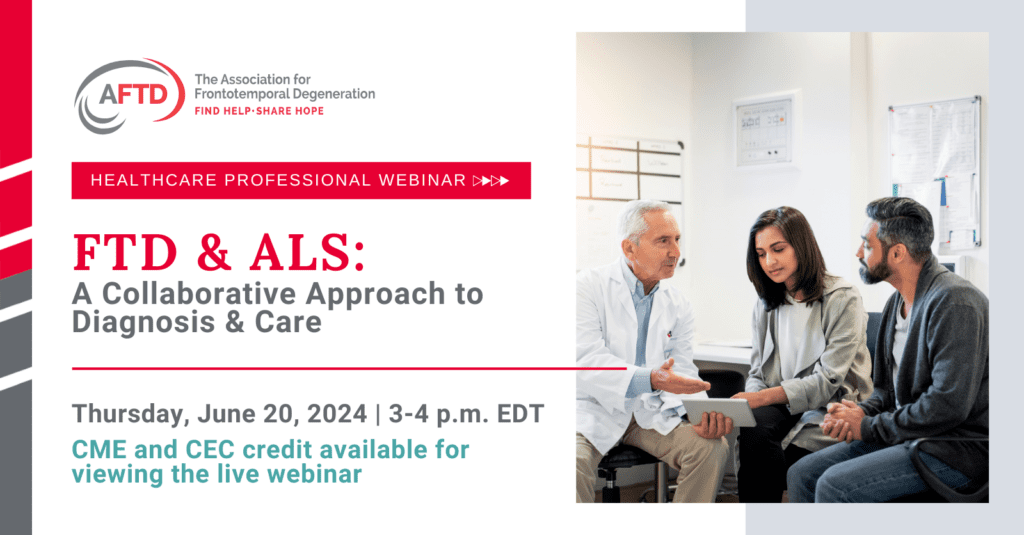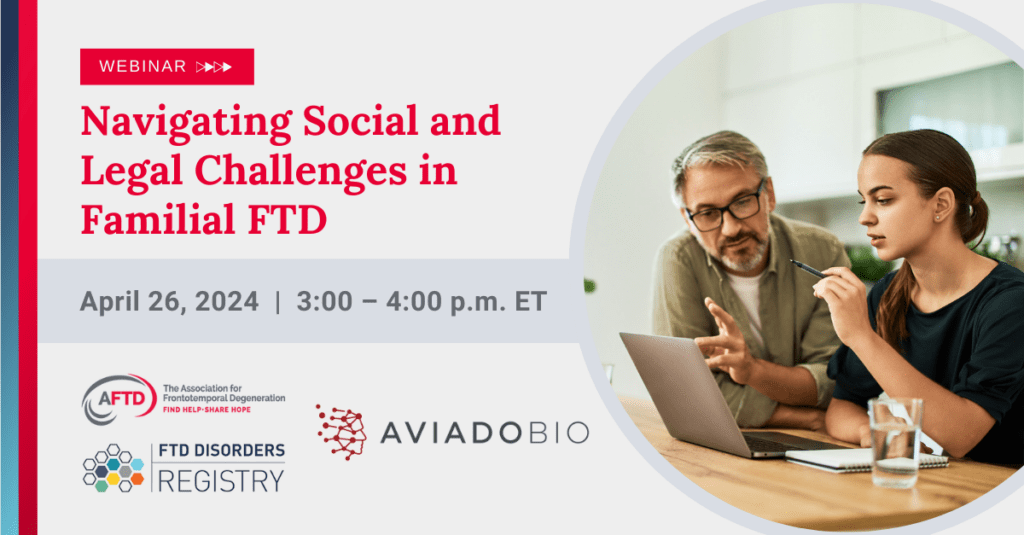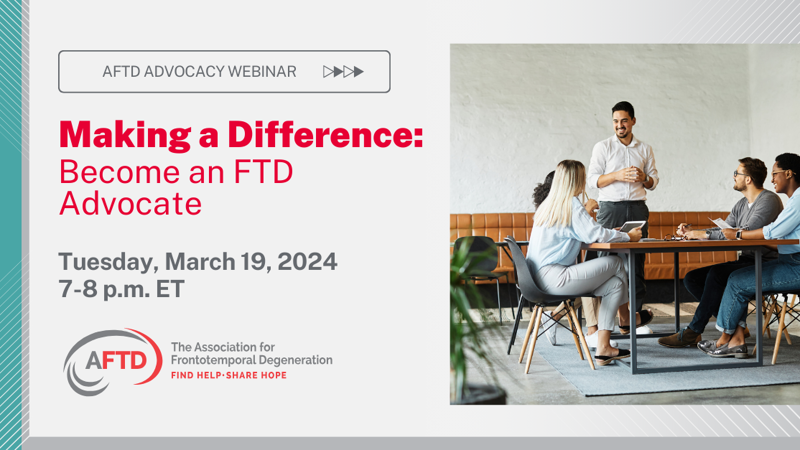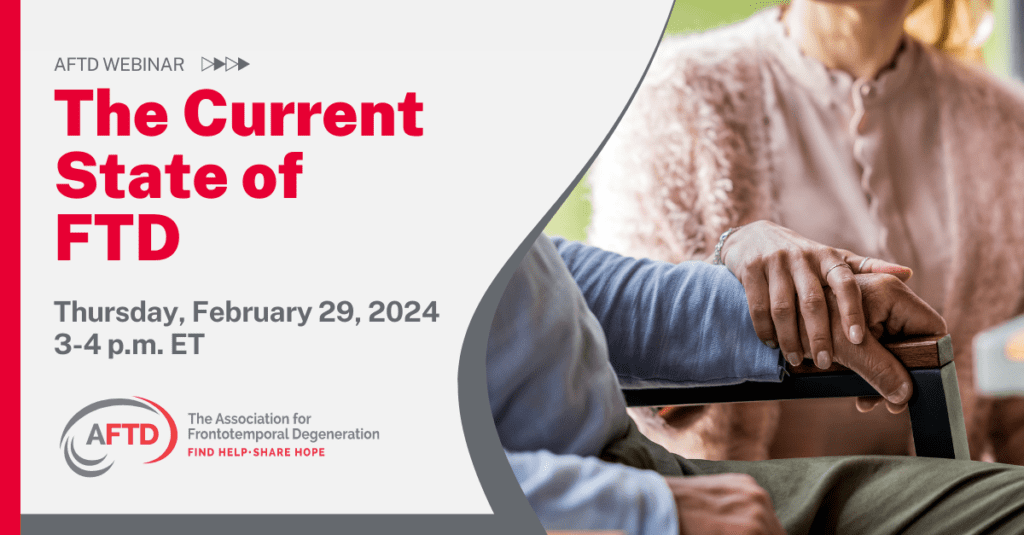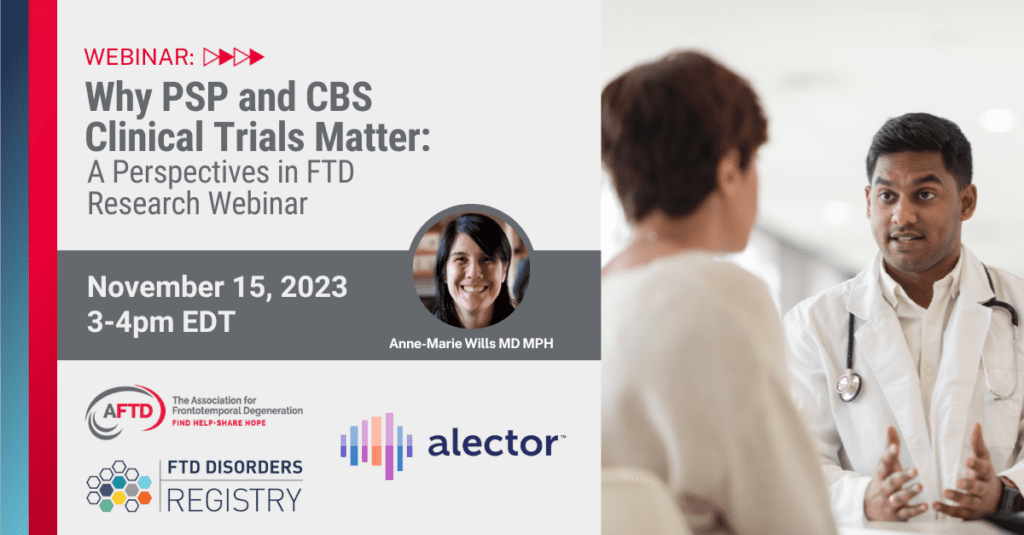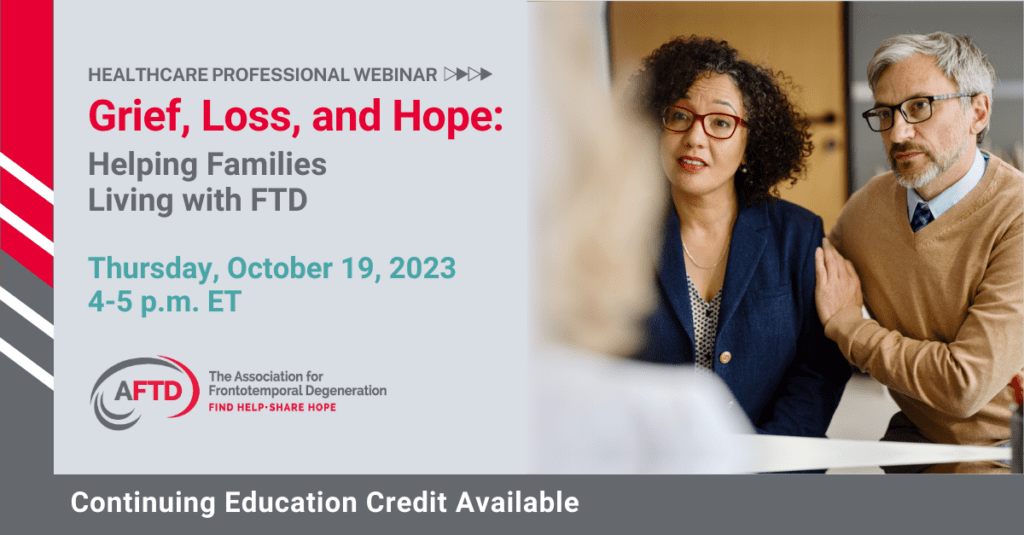What's New
Webinars
AFTD Webinar: Advocate for Awareness — Working with Lawmakers to Highlight FTD
FTD advocates can help bring awareness to their communities by working with lawmakers to issue proclamations and…
AFTD Webinar: FTD and ALS — A Collaborative Approach to Diagnosis and Care
We know of several genes that can cause hereditary FTD, ALS, and ALS with FTD, with C9orf72…
Perspectives in FTD Research Webinar: Navigating Social and Legal Challenges in Familial FTD
Prof. Jalayne Arias, a researcher focused on policy, ethics, and law, and genetic counselor Laynie Dratch join this…
AFTD Webinar: Making a Difference — Become an FTD Advocate
Many members of the AFTD community have found meaning and purpose by becoming an FTD advocate, working…
AFTD Webinar: The Current State of FTD
Today, more people than ever know what FTD is and how it differs from other dementias, while…
Perspectives in FTD Research Webinar: Gene Therapy for FTD — What Do I Need to Know?
In the last several years, new clinical trials have begun for drugs that can potentially slow or…
AFTD Webinar: Approaching a Cure — FTD Genetics and Clinical Trials
The landscape of FTD research has evolved tremendously over the last decade. FTD-causing genetic variants, and the…
Perspectives in FTD Research Webinar: Why PSP and CBS Clinical Trials Matter
Progressive supranuclear palsy (PSP) and corticobasal syndrome (CBS) are FTD disorders that primarily affect movement and are…
AFTD Webinar: Grief, Loss, and Hope — Helping Families Living with FTD
FTD is the most common dementia for people under 60, and often occurs when there are teens…
AFTD Webinar: Answering Questions and Providing Support — A Q&A with AFTD HelpLine Staff
Understanding and managing FTD can be overwhelming for those living with a diagnosis, their care partners, and…

